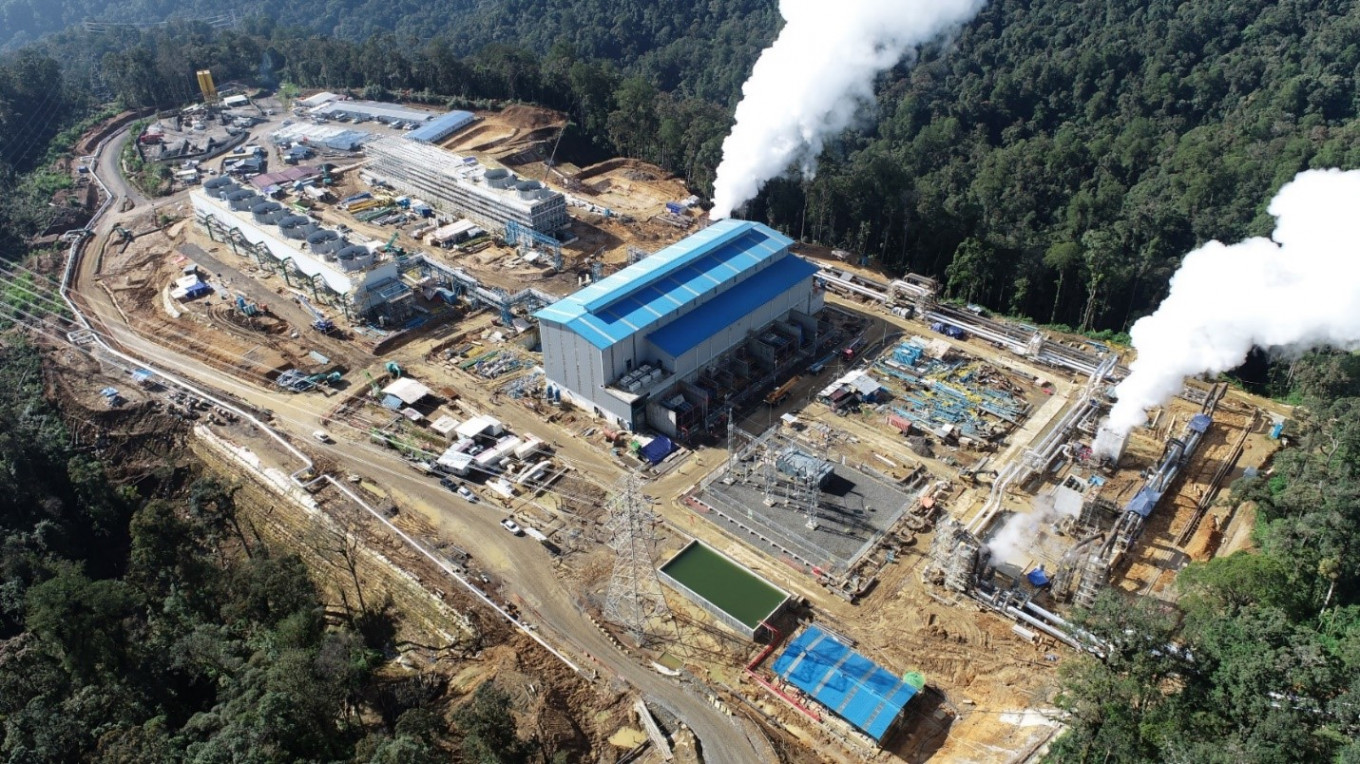Popular Reads
Top Results
Can't find what you're looking for?
View all search resultsPopular Reads
Top Results
Can't find what you're looking for?
View all search resultsJETP could help drive Indonesia’s geothermal growth
While the JETP scheme could help jump-start growth in Indonesia’s geothermal power, but experts say the industry is still mired in high development costs, price uncertainty and unfavorable regulations.
Change text size
Gift Premium Articles
to Anyone
T
he Just Energy Transition Partnership (JETP) could propel geothermal energy growth in Indonesia, experts say, but this hinges on the government’s ability to provide legal certainty, incentives and clear prospects for the renewable energy.
Experts told the The Jakarta Post that the domestic geothermal industry was hedged in by high development costs on the one hand and uncertainty in electricity offtake pricing on the other, which clouded the economic prospects for undertaking local projects.
Andri Prasetiyo, a researcher at Senik Centre Asia, told the Post on Monday that financing from a scheme like the JETP was essential in jump-starting local geothermal energy projects, which were developing at a painstakingly slow pace.
Data from the Energy and Mineral Resources Ministry shows that the total installed geothermal power generation capacity in Indonesia was 1.9 gigawatts in 2018. It then rose 21 percent over the next four years to reach 2.3 GW last year.
According to state electricity company PLN’s latest 10-year Electricity Supply Business Plan (RUPTL), Indonesia aims to increase its total installed geothermal capacity to 2.39 GW by 2030, or just 10 percent of its 23.96 GW potential capacity.
The government aims to install a total of 9.3 GW by 2035, which would require an additional 7 GW of installed capacity.
Andri said that achieving the 2035 target would require roughly US$3.65 million for every megawatt of geothermal power generated, which brought the total investment needed to US$25.29 billion by his calculation.
“There is a hope that the JETP will be able to drive geothermal power growth in Indonesia in the long run. But first, stakeholders must ensure that the industry is competitive, fair and efficient,” he said.
“The JETP financing alone is obviously not going to cover this, but [the scheme] is a catalyst to attract more investment to the sector,” he added.
Read also: Fitch sees hurdles to implementing JETP in Indonesia
When asked about its funding allocations for renewable projects, including whether these included geothermal energy, the JETP Secretariat in Jakarta replied that it was unable to disclose its list of priority projects.
“We are unable to provide any details regarding the financing allocation. There is nothing final before Aug. 16,” Adhityani Putri, a communications specialist at the JETP Secretariat, told the Post on Friday.
Meanwhile, JETP Secretariat head Edo Mahendra said on July 13 that the $20 billion JETP Indonesia scheme had more objectives than retiring coal-fired power plants. Its other priorities included developing a renewable energy supply chain as well as constructing power transmission infrastructure, baseload plants and other supporting facilities.
According to Edo, geothermal and hydro power plants were expected to be the “backbone” of the nation’s renewable electricity supply, while solar and wind power were expected to help accelerate the energy transition.
Read also: 'Show me the money': RI frustrated with green financing deadlock
Prijandaru Effendi, chairman of the Indonesia Geothermal Association (INAGA), said on Thursday that the deployment of baseload renewable energy, such as geothermal and hydro, needed to run in conjunction with the early retirement of coal-fired power plants (PLTUs).
As baseload generation sources, geothermal and hydro could produce electricity consistently and run 24-7 regardless of weather conditions, dispelling doubts over whether renewables could match the reliability of fossil fuel power plants.
“Geothermal power is proven capable of producing baseload renewable energy with high availability,” Prijandaru said.
“INAGA was invited by the JETP Secretariat to discuss the mechanism’s financing plan for geothermal projects on July 18,” he added, and that the government should direct PLN to buy geothermal power at a higher price through an assignment scheme.
Prijandaru also noted that business-to-business negotiations did not help in creating a healthy investment climate. The prevailing regulations forced renewable power plants into competition over offtake purchase prices against PLTUs, which bore costs that were artificially reduced through coal price caps, economies of scale and the absence of carbon taxes.
“This is the right time to make geothermal investment in Indonesia more attractive,” he underlined.
The United States Embassy in Jakarta emphasized that the JETP was an Indonesia-led partnership, and that its realization depended on how fast the government was able to create an industry climate that was conducive to JETP project development and build a project pipeline.
“That, in large part, drives the speed [at which] JETP funding can flow,” Embassy spokesperson Michael D. Quinlan told the Post on Monday.










